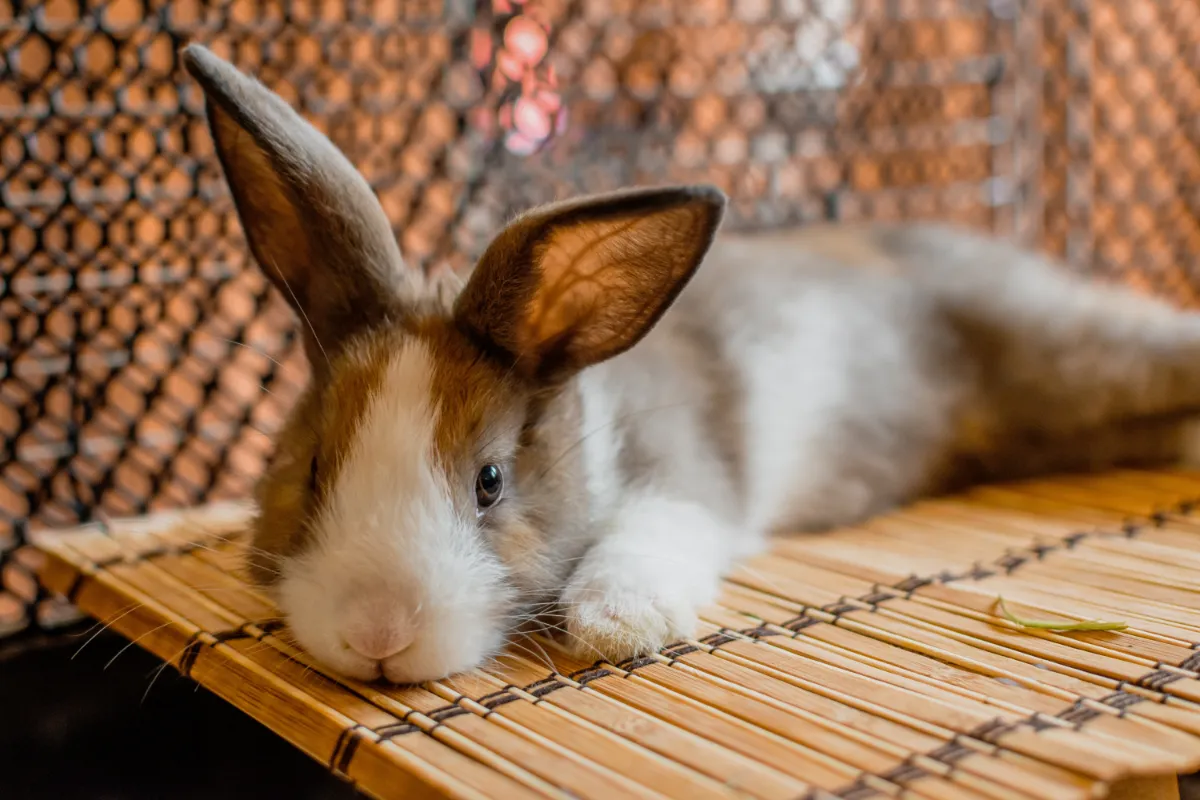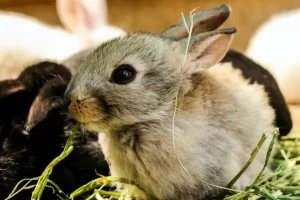If your rabbit is not moving, you may be feeling worried and unsure of what to do next. Don’t panic! In this article, we will guide you through the steps to assess the situation and provide the necessary care for your furry friend.
With our helpful tips and expert advice, you’ll be able to ensure your rabbit’s well-being and take appropriate action if needed.
Remember, being proactive and attentive to your pet’s needs is key to their health and happiness.
In This Article
- 1 Key Takeaways
- 2 Assess the Situation
- 3 Check for Signs of Injury or Illness
- 4 Provide a Quiet and Comfortable Environment
- 5 Offer Fresh Food and Water
- 6 Monitor for Any Changes in Behavior
- 7 Seek Veterinary Assistance
- 8 Take Preventive Measures to Ensure Rabbit’s Health
- 9 Frequently Asked Questions
- 9.1 How Often Should I Clean My Rabbit’s Cage?
- 9.2 Can I Give My Rabbit Human Pain Medication if It Seems to Be in Pain?
- 9.3 What Should I Do if My Rabbit Stops Eating but Has No Signs of Injury or Illness?
- 9.4 Is It Normal for My Rabbit to Sleep for Long Periods of Time?
- 9.5 Can I Use Essential Oils in My Rabbit’s Environment to Help Them Relax?
- 10 Conclusion
Key Takeaways
- Quickly evaluate if there’s immediate danger to the rabbit
- Observe mobility issues, such as inability to move limbs or dragging instead of hopping
- Seek professional advice if there’s a serious injury or distress
- Take immediate action if any signs of injury or illness are noticed
Assess the Situation
You should quickly assess the situation and determine if there’s any immediate danger to your rabbit. Evaluate mobility issues by observing if your rabbit is unable to move its limbs or if it’s dragging itself instead of hopping. Look for signs of pain, such as whimpering or reluctance to move.
It’s important to remain calm and keep your rabbit comfortable during this process. If you suspect a serious injury or if your rabbit is in distress, seek professional advice immediately. A veterinarian specializing in exotic animals will be able to provide the best care and guidance for your rabbit.
Check for Signs of Injury or Illness
Observe your rabbit for any noticeable signs of injury or illness. It’s important to be vigilant and attentive to any changes in behavior or physical condition. Look for signs such as limping, bleeding, swelling, or discharge from the nose or eyes. Additionally, pay attention to any changes in eating or drinking habits, as well as any unusual lethargy or lack of movement.
If you notice any of these signs, it’s crucial to take immediate action to ensure the well-being of your rabbit. First aid can be administered at home for minor injuries or illnesses, but it’s always recommended to consult a veterinarian for a proper diagnosis and treatment. Home remedies such as cleaning wounds with mild antiseptic solutions or providing a warm and quiet environment can be beneficial in the meantime.
Provide a Quiet and Comfortable Environment
Ensuring a quiet and comfortable environment for your rabbit can greatly contribute to their overall well-being and recovery. Rabbits are sensitive creatures that thrive in a peaceful setting, so it’s important to create a safe space for them.
Providing a quiet area free from loud noises, such as TVs or loud music, will help reduce stress and allow your rabbit to relax. Additionally, consider placing their enclosure in a calm part of your home, away from high traffic areas.
To further enhance their well-being, provide mental stimulation through toys and activities. Rabbits are intelligent animals that enjoy exploring and solving puzzles. Offer them chew toys, tunnels, and hiding spots to keep them engaged and prevent boredom.
Offer Fresh Food and Water
Make sure to regularly provide your rabbit with fresh food and water, as this will help keep them hydrated and nourished.
Encouraging a rabbit to eat can sometimes be challenging, but there are a few tips that can help. First, offer a variety of fresh vegetables such as leafy greens, carrots, and bell peppers. This won’t only provide essential nutrients but also add some excitement to their meals.
Additionally, providing high-quality hay is crucial for a rabbit’s digestive health. Timothy hay is a good option.
If your rabbit is showing signs of dehydration, it’s important to act quickly. Look out for symptoms like dry mouth, sunken eyes, and lethargy. If you suspect dehydration, offer your rabbit water immediately and consult a veterinarian for further guidance.
Monitor for Any Changes in Behavior
Keep an eye out for any unusual behaviors in your rabbit, as they can be indicators of underlying health issues. Monitoring your rabbit closely is essential to ensure their well-being. If you notice any changes in behavior, it is important to take action promptly. Here are some behaviors to observe closely:
| Unusual Behavior | Possible Indicators | Actions to Take |
|---|---|---|
| Lack of movement | Pain or injury | Seek professional advice immediately |
| Hiding or crouching | Fear or illness | Provide a quiet and comfortable environment |
| Excessive scratching | Parasites or allergies | Consult with a veterinarian for proper treatment |
| Loss of appetite | Digestive issues or dental problems | Offer fresh hay and vegetables, and monitor water intake |
| Aggression or irritability | Stress or pain | Create a calm and stress-free environment |
Seek Veterinary Assistance
If your rabbit isn’t moving, you should immediately seek veterinary assistance to address any potential health issues. It’s important to understand that a lack of movement in rabbits can be indicative of a serious underlying condition. Rabbits are prey animals, and they often hide signs of illness or pain until the condition becomes critical. Therefore, it’s crucial to act promptly.
When discussing symptoms with the veterinarian, be sure to mention any changes in behavior, appetite, or bathroom habits. These details will aid in the diagnosis and treatment of your rabbit.
Keep in mind that certain emergency situations, such as trauma or difficulty breathing, require immediate attention. Your veterinarian will guide you on the best course of action to ensure the well-being of your furry friend.
Take Preventive Measures to Ensure Rabbit’s Health
To ensure your rabbit’s health, regularly cleaning their living space and providing them with a balanced diet are important preventive measures. Taking these steps can help prevent common health issues and promote overall well-being for your furry friend.
Here are some key points to consider:
- Regular exercise:
- Provide ample space for your rabbit to hop, run, and play.
- Encourage daily playtime to keep them active and prevent obesity.
- Proper grooming:
- Brush your rabbit’s fur regularly to prevent matting and hairballs.
- Trim their nails to avoid overgrowth and discomfort.
By incorporating regular exercise and proper grooming into your rabbit’s routine, you can help maintain their physical and mental health. Additionally, consulting with a veterinarian to establish a comprehensive healthcare plan is crucial.
Frequently Asked Questions
How Often Should I Clean My Rabbit’s Cage?
You should clean your rabbit’s cage at least once a week. This will help prevent odor and keep your rabbit healthy. Make sure to change the bedding regularly to maintain a clean and odor-free environment.
Can I Give My Rabbit Human Pain Medication if It Seems to Be in Pain?
If your rabbit is in pain, it’s important to seek veterinary care. Giving human pain medication to rabbits can be dangerous and potentially fatal. There are alternative pain management options available specifically for rabbits.
What Should I Do if My Rabbit Stops Eating but Has No Signs of Injury or Illness?
If your rabbit suddenly stops eating and shows no signs of injury or illness, it’s important to monitor their appetite loss and lack of movement closely. Seek veterinary advice for a proper diagnosis and treatment.
Is It Normal for My Rabbit to Sleep for Long Periods of Time?
It’s not unusual for rabbits to sleep for long periods of time. However, if you notice any signs of abnormal behavior, such as lack of movement or responsiveness, it’s important to take immediate action to ensure your rabbit’s well-being.
Can I Use Essential Oils in My Rabbit’s Environment to Help Them Relax?
Using essential oils in your rabbit’s environment is not recommended as it can be harmful to their health. Instead, consider alternative relaxation methods such as providing a safe and comfortable space for them to rest and play.
Conclusion
In conclusion, if your rabbit isn’t moving, it’s crucial to assess the situation and check for signs of injury or illness.
Creating a quiet and comfortable environment, offering fresh food and water, and monitoring for any changes in behavior are essential steps to take.
However, if the condition persists or worsens, seeking veterinary assistance is highly recommended.
Taking preventive measures to ensure your rabbit’s health is vital for their overall well-being.
Remember, a healthy and active rabbit is a happy rabbit.





